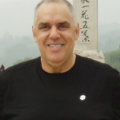A critical decision to make
(China Daily) Updated: 2014-09-01 07:22With the National People's Congress Standing Committee (NPCSC) having made its decision regarding the reform blueprint for the 2017 election of Hong Kong's Chief Executive, clear parameters have finally been established for the introduction of universal suffrage in the special administrative region (SAR).
For universal suffrage to be implemented as scheduled, it is imperative for the next stage of consultation to be conducted with in these boundaries. Under the existing constitutional setup, the NPCSC has the ultimate authority to interpret the Basic Law, which constitutes the sole legal basis for any changes to be made to the city's electoral arrangements.
Unfortunately, political radicals in the city have determined not to settle for anything that falls short of their demand for so-called "international standards" of democracy. Immediately after the NPCSC decision, they vowed to make good on their threat to paralyze Hong Kong's financial heart by summoning thousands of supporters onto the streets in defiance of the law.
The radicals are not only challenging the authority of the country's top legislature but also threatening the SAR's rule of law-the cornerstone of the city's long-term stability and prosperity.
Hong Kong has managed to survive gloomy predictions about its post-handover demise as well as crises of various kinds over the past 17 years. But it achieved this not because of "international standards", but because of the "One Country, Two Systems" policy prescribed by the Basic Law. It is to the credit of this innovative political architecture that the city still ranks the third most important financial hub after New York and London, and remains the fourth most competitive economy globally.
Without taking the actual local situation into consideration, Western-style democracy hastily and prematurely introduced into many countries has never yielded the intended results.
The sensible approach should be to advance democracy in a gradual and orderly manner as advised by the central government. Basic democratic rights, much less universal suffrage, had been glaringly absent in the city's 150 years of colonial rule. The fact that the pledge of universal suffrage first came from Beijing instead of 10 Downing Street serves as the best testimony to the central government's sincerity in advancing democracy.
Now that Hong Kong's stability and economic well-being is being threatened by political extremists pursuing so-called "international standards", the people of Hong Kong have a critical decision to make: to embrace a hitherto unprecedented level of democracy, or the disruptive, reckless political gamble to be staged by the radicals. The people of Hong Kong have the courage and wisdom to make the right choice.











